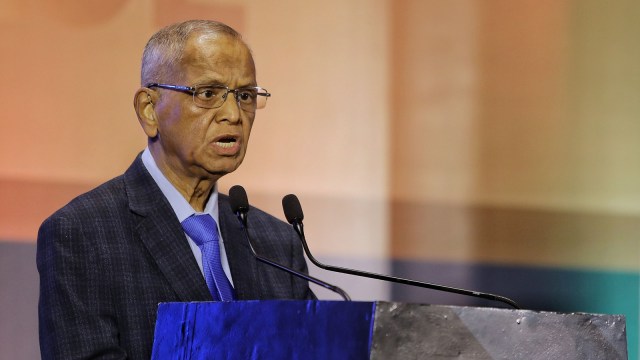Infosys’ Rs 18,000-cr buyback: How shareholders stand to benefit
Since January this year, Infosys share price has fallen by 20 per cent amid geopolitical uncertainties and trade tensions.
 Infosys plans to buyback up to 10 crore shares with a face value of Rs 5 each. (Express Photo)
Infosys plans to buyback up to 10 crore shares with a face value of Rs 5 each. (Express Photo)The board of Infosys Ltd approved a Rs 18,000-crore share buyback on Thursday, making it the largest-ever repurchase of securities in the IT major’s history. The buyback, which will be through the tender offer route, is priced at Rs 1,800 per equity share. Infosys plans to buyback up to 10 crore shares with a face value of Rs 5 each. The announcement comes amid a nearly 20 per cent fall in the company’s share price since January this year.
What is a share buyback?
A buyback, also known as share repurchase, is when a listed company buys its own shares from existing shareholders. The process reduces the number of outstanding shares in the open market over a period which can lead to better valuation and earning per share (EPS). It is another way of paying dividends to shareholders by companies.
Currently, a company can buy back its shares from shareholders on a proportionate basis through tender offer, or from the open market via book-building process, or from the odd-lot holders. The maximum limit of any buyback is 25 per cent or less of the aggregate of paid-up capital and free reserves of a company.
Under the stock exchange route, a company can buy back shares only on the stock exchanges having nationwide trading terminals. The buyback is made only through the order matching mechanism.
Tender offer means an offer by a company to buy back its own shares or other specified securities through a letter of offer from the holders of the shares or other specified securities of the company. The buyback is done on a proportionate basis as per the buyback ratio, and the additional shares tendered over and above the prescribed buyback ratio get accepted if there are any unaccepted shares.
Infosys’ share buyback
Bengaluru-based tech blue chip company, Infosys Ltd, on September 11, announced that it has received a board approval to buyback equity shares for an amount of Rs 18,000 crore at a price of Rs 1,800 per equity share, a 19 per cent premium to the closing price of Rs 1,509.5 apiece on September 11.
The offer, which will be conducted through the tender offer route, comprises a purchase of 10 crore equity shares of the company of face value of Rs 5 each. This forms up to 2.41 per cent of the company’s total paid-up equity share capital.
The share buyback is the fifth and the largest by Infosys. In 2017, the company launched a Rs 13,000 crore of buyback, followed by Rs 8,260 crore in 2019, Rs 9,200 crore in 2021 and Rs 9,300 crore in 2022.
The rationale
“The company has a cash reserve of nearly Rs 24,455 crore. They believe that stock has fallen down significantly but there is significant value in the company, and so, they are looking for a buyback,” said Sumit Pokharna, Vice President and analyst, Kotak Securities.
Since January this year, Infosys share price has fallen by 20 per cent amid geopolitical uncertainties and trade tensions.
The buyback announcement of Infosys comes against the backdrop of Indian IT companies increasingly leaning on buybacks to return cash to investors. Data shows that Wipro, HCL Tech and TCS have all tapped this route in recent years, a report by Motilal Oswal Financial Services said.
According to a report by Nomura Research, the buyback to be largely earning per share (EPS)-neutral in FY26. Infosys had noted that it expects dividends to increase progressively every year (in FY25 it had paid a dividend of Rs 43 per cent share).
How shareholders may gain
The benefit of participating in Infosys’ share buyback will depend on the tax bracket of a shareholder. It will be more tax efficient for some retail and long-term shareholders. As of June 30, 2025, the total number of resident individuals holding nominal share capital up to Rs 2 lakh in the company stood at Rs 24.86 lakh.
The current tax policy says that the share sales proceeds would be considered as dividend and will be taxed. At the same time, the cost of purchase will be a capital loss depending on how long the shareholder has been holding the shares, Pokharna said.
The tax will be payable by the recipient shareholder on the total amount received from the buyback as deemed dividend under section 2(22) (f). The cost of acquisition will be carried forward as deemed capital loss and can be utilized against the future gains from sale of remaining shares, he said.

- 01
- 02
- 03
- 04
- 05































